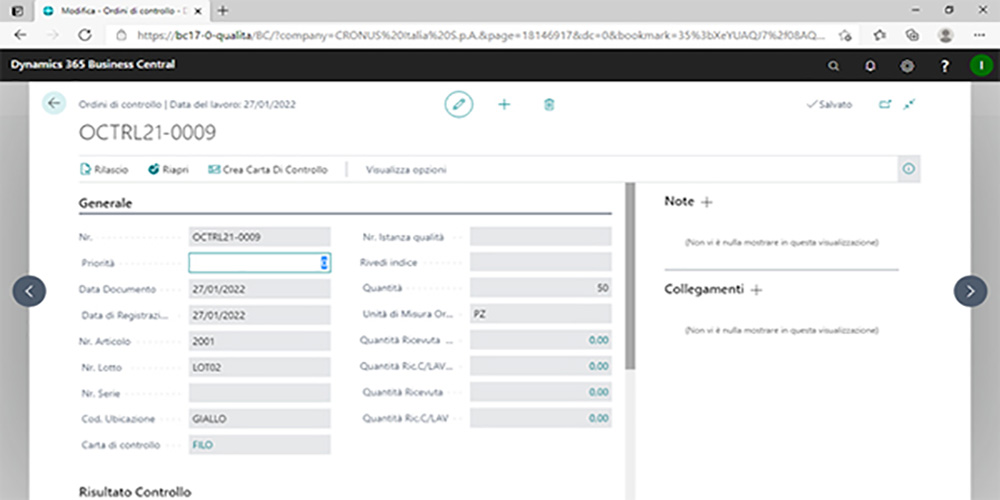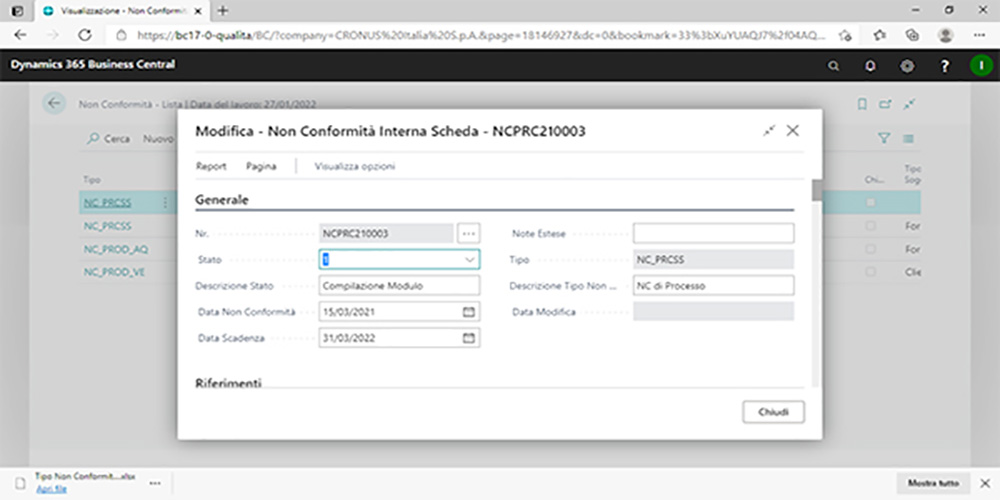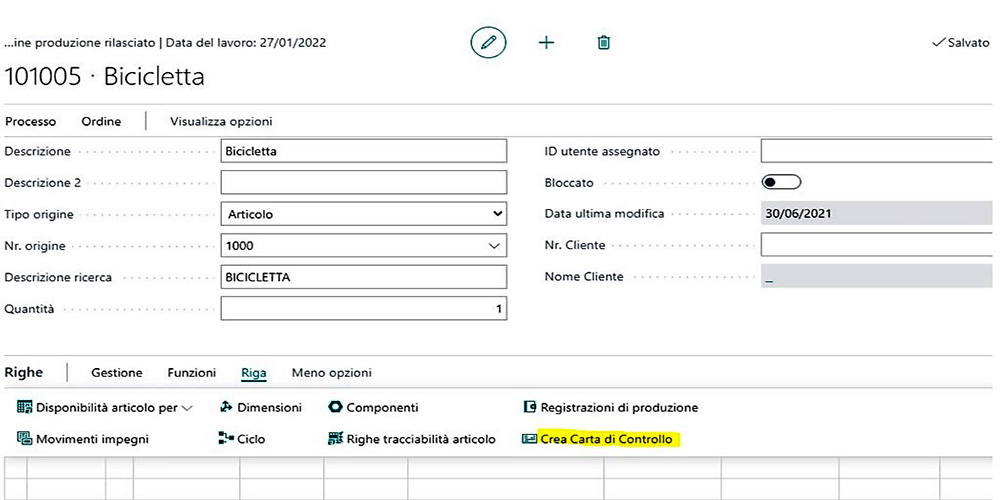Tempo Zero QMS: managing measurements and quality control in your ERP
Tempo Zero QMS
Tempo Zero QMS is the APP for the management of measurements and quality control in in Sales, Purchases and Manufacturing in the Microsoft Dynamics 365 Business Central ERP.
This extension allows to manage and trace the processes related to quality system, keeping accurate technical evaluations in manufacturing and distribution/commercial companies.
The quality of a product is influenced by many interacting activities (design, supply, production). Tempo Zero QMS offers a series of tools to support your company in this activities in SALES/PURCHASING and MANUFACTURING areas.
La QUALITA’ misurala con Tempo Zero QMS!
Tempo Zero QMS: features
MEASURES
The management of quality controls on incoming products allows to define parametrically, for each type of product managed, the following information:
- Control tests to be carried out by item type: it is possible to create different control cards to record the measurements linked to a specific item in line with its purchasing or production process. The “Control Card” is created according to the various measurements that you decide to carry out and is linked to one or more items.
- Admissible values and control parameters.
- Measurement historicization made on the single Purchase or Production Orders with the Quality Instance cards.
- Cards of Measuring instruments.
QUALITY CONTROL
A control order allows to manage the controls of the quantities, received by purchasing or subcontracting, that are subject to inspection.
The incoming quality control management allows to manage the following information:
- Control order management linked to the input documents, subcontracting shipping documents and production orders.
- Control with traceability by Series No. and Lot No.
- Control sample sizes.
- Conformity and NonConformity posting.
- Loading of the warehouse location or specific placement of items (with the Quality Set Up) in relation to a receipt from vendors or subcontractors.
The conforming quantities are put and moved to the receiving location/placement while the non-conforming quantities are transferred to the non-conforming materials location/placement.
Only the Production orders with an external phase (on Subcontracting) generate a Control Order for the material received from the Subcontractors.
NON-CONFORMITIES
NonConformity management allows the compilation of cards for each item and production orders to evaluate the outcome of the following activities: customer non-conformity, vendor non-conformity and internal activities about production process (process non-conformities).
- Customer non-conformity
- Vendor non-conformity
- Process non-conformities (internal activities about production process)
Each NonConformity is followed in its evolution, defining:
Type / State / Defects / Solutions / Result of Solutions / Closure.
Connection of the quality parameters with the item master data
The item database is linked with an “item card” to the quality measures.
They show:
- sampled quantities,
- non-conforming quantities
- control card models
Tempo Zero QMS: screenshots
Control cards

Control orders

Non-Conformity – internal tables

Non Conformity table

Fields for “control cards”

new fields for Production Order issued

“Open Control Chart” function for released production order lines

“Create Control Card” function for released production order lines


CONTACT NAV-LAB
You will be contacted by our specialists in Microsoft ERP and the Tempo Zero suite of apps. Our consultants are available to provide insights on content, features, usage modes for the benefit of your company, and for a personalized demo.
ACTIVATE THE APP NOW
To activate the app, you need to contact NAV-lab for cost information and support regarding the download and implementation.
It’s also necessary to subscribe to the corresponding online service contract on a monthly or annual basis (SaaS – Software as a Service).
The service cost varies based on the number of users
